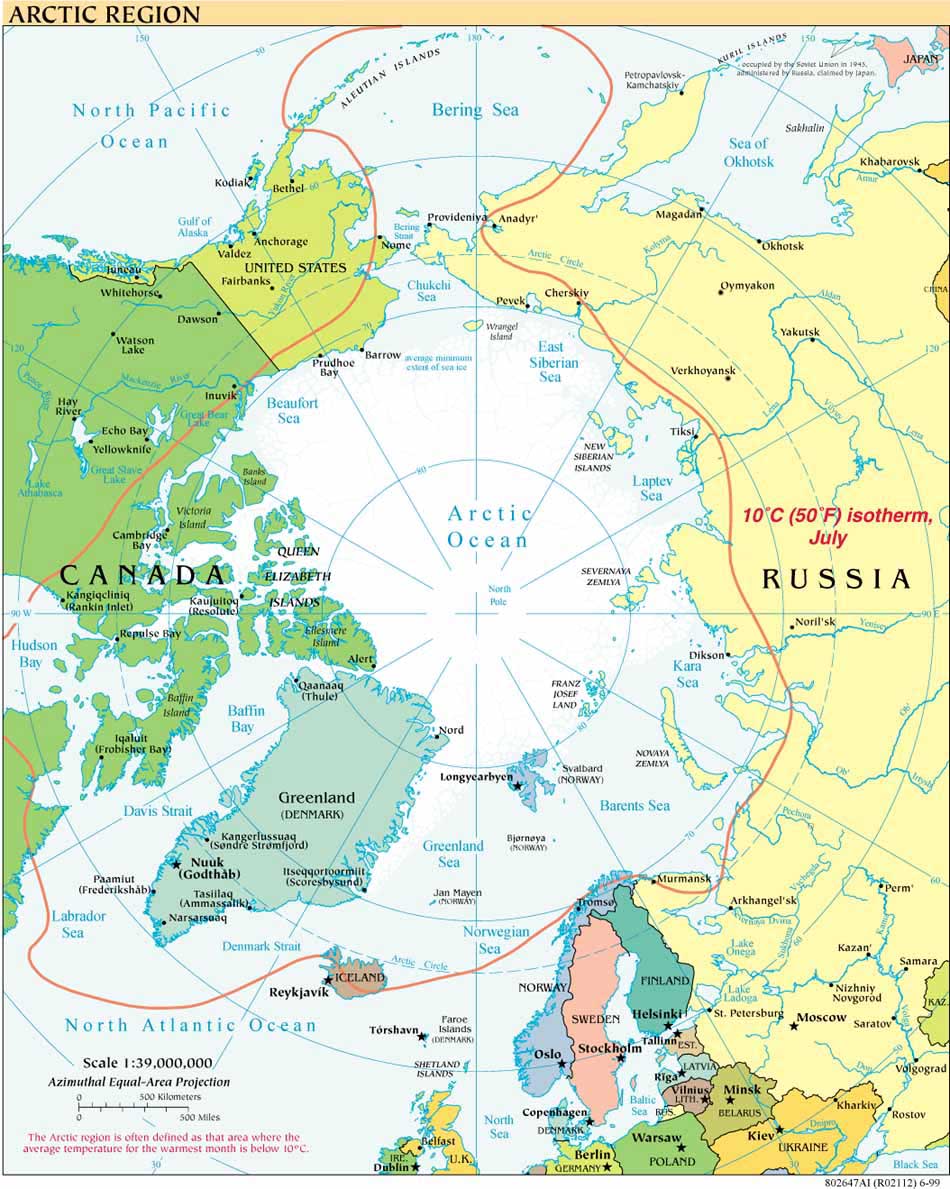April 20, 2011: The one-year anniversary of the BP Deepwater Horizon explosion and oil spill in the Gulf of Mexico is as weighty a reason as any for breaking the hiatus of several months on this site. The DWH disaster not only led to formal reviews of arctic offshore drilling practices in the United States and in Canada (which had already begun such a review process); it also prompted widespread discussion of best offshore practices in other arctic coastal states, and contributed to the convening of an Inuit Leaders Summit on Resource Development.
The final report of the U.S. National Commission on the BP Deepwater Horizon Oil Spill and Offshore Drilling includes specific reference to implications of the DWH disaster for the Arctic. The Recommendations as well as portions of Chapter Ten in the final report discuss “The Arctic ecosystem, the need for scientific information and informed decision-making, and Alaska native peoples,” “Arctic Spill Response and Containment,” and “International Standards for Arctic Oil and Gas”. On the last point, “the Commission recommends that strong international standards related to Arctic oil and gas activities be established among all the countries of the Arctic.” Recommendations, p. 56. The Commission staff also prepared a background paper on The Challenges of Oil Spill Response in the Arctic.
Moving in the direction of stronger international standards, the US Secretary of the Interior, Ken Salazar, held a Ministerial Forum on Offshore Drilling Containment last week (April 14, 2011) to discuss international standards for well containment. Canada, Norway, The Russian Federation, and the United States -- that is to say: all arctic coastal states save Denmark/Greenland, were there. Angola, Australia, Brazil, Netherlands, New Zealand Mexico, the EU, and the United Kingdom, also attended.
Secretary Salazar will also attend the May ministerial meeting of the Arctic Council with Secretary of State Clinton, where offshore oil and gas development is on the agenda. In 2009 the Arctic Council ministers endorsed “Arctic Offshore Oil and Gas Guidelines” prepared by its PAME (Protection of the Marine Environment) working group. The Institute for Energy and the Environment at Vermont Law School has prepared studies of how offshore regulations in Canada, Greenland, Russia and the United States measure up to these Guidelines.
The final report of the U.S. National Commission on the BP Deepwater Horizon Oil Spill and Offshore Drilling includes specific reference to implications of the DWH disaster for the Arctic. The Recommendations as well as portions of Chapter Ten in the final report discuss “The Arctic ecosystem, the need for scientific information and informed decision-making, and Alaska native peoples,” “Arctic Spill Response and Containment,” and “International Standards for Arctic Oil and Gas”. On the last point, “the Commission recommends that strong international standards related to Arctic oil and gas activities be established among all the countries of the Arctic.” Recommendations, p. 56. The Commission staff also prepared a background paper on The Challenges of Oil Spill Response in the Arctic.
Moving in the direction of stronger international standards, the US Secretary of the Interior, Ken Salazar, held a Ministerial Forum on Offshore Drilling Containment last week (April 14, 2011) to discuss international standards for well containment. Canada, Norway, The Russian Federation, and the United States -- that is to say: all arctic coastal states save Denmark/Greenland, were there. Angola, Australia, Brazil, Netherlands, New Zealand Mexico, the EU, and the United Kingdom, also attended.
Secretary Salazar will also attend the May ministerial meeting of the Arctic Council with Secretary of State Clinton, where offshore oil and gas development is on the agenda. In 2009 the Arctic Council ministers endorsed “Arctic Offshore Oil and Gas Guidelines” prepared by its PAME (Protection of the Marine Environment) working group. The Institute for Energy and the Environment at Vermont Law School has prepared studies of how offshore regulations in Canada, Greenland, Russia and the United States measure up to these Guidelines.



